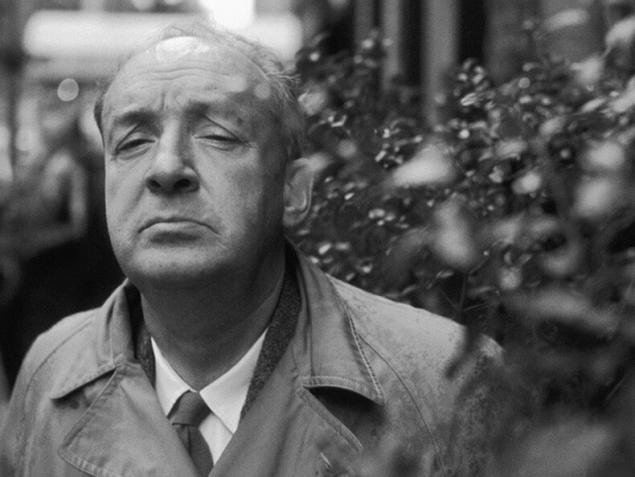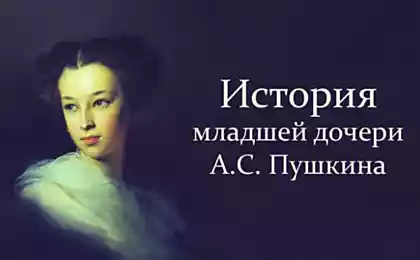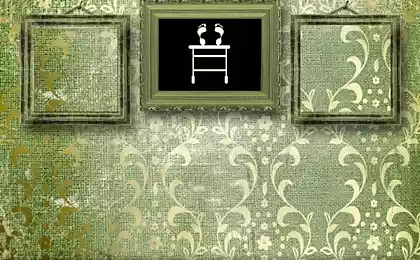426
On vulgarity and stupid
Nabokov has an essay on the vulgar and vulgarity, in which he succinctly and accurately describes as the phenomenon itself and of the carriers of this "lifestyle".
Written famous essays like today: a wide range of life sentences matches perfectly with this time testifying – modern society is suffocating from the vulgarity, which climbs from all cracks.

"Vulgarity – is not only obvious, blatant lack of talent, but mostly false, fake significance, fake beauty, a fake mind, fake attraction... Everything is genuine, honest, beautiful can't be vulgar, "says Nabokov.
Our time – time fakes and surrogate, when all the sensible and true exterminated in favor of low-quality counterfeit. Ribald, tasteless and immoral is elevated to a virtue and cultivated as a reference.
True love is replaced by partnership and open relationship, loyalty benefits and friendship turned into hatred, motherhood was desacralisation, the true Church seek to substitute a caricature likeness, operating outside the law.
Vulgarity has captured the masses and directs consciousness. And from it nobody shrugs, like an annoying fly.
"Vulgar is not interested and not interested in art, including literature – his whole nature is hostile to art. But he greedily absorbs all sorts of information and well-trained in reading Newspapers and magazines..." – gives a definition of Nabokov.
Today, this list can be added and TV. The banality and mediocrity, with rare exceptions, gleaming with screens and broadcasts from the pages of Newspapers. Flat humor, banal in izbiste, roughly tasteless, persistently and relentlessly "fun" of the audience. Sleaze honored.
No need to high as a special style – the ridicule of all high, great signs of our time...
Under the influence of Chekhov, with whose works I am familiar since I was 11, I think the main enemies of man, the vulgarity and ignorance. Gorky wrote about Chekhov: "His enemy was vulgarity, and he fought all his life with her."
Distancing himself from society, but not turned into a snob, as the doctor indicated illness, worried and tried to help "sick humanity" to cope with the illness.
He fearlessly and truthfully told about people. Hard, relentlessly hard-hitting. No half-truths.
Replacement high-low-lying – the essence of vulgarity. And, in particular, it demonstrates the Czechs in their unsurpassed stories.
How Philistine people are trying to assert themselves, to Shine in society. Irrepressible desire to belong to the "elite circle" at any cost betray yourself, family, go to the head. Chekhov shows the spiritual misery of man, his callousness. While complete public indifference, which becomes the norm.
The Czechs could not tolerate such words as "juicy" and "colorful". And resented the pretentiousness of the Moscow modernists: "What are they decadent! They zdorovennye guys! They would convict company to give!.. All this new art Novo nonsense... just that talented".

Platitude is taking over man, sometimes elusive for him, demonstrated by Chekhov in "Ionice". In the process of destroying the personality of the main character, lasting about eleven years old, his life ends in spiritual death.
At the end of the story before us is a violent, evil man who betrayed the memory of once being his dear, his love, Kitty (Ekaterina Ivanovna), the first and only joy in his life. He becomes worse than those who despised, denounced, against whom resented.
Realizing the adverse impact of environment and society, Czechs still primarily sees the problem in the man who left without attention their flaws and letting them be further developed into a Vice.
The slags of emotions: as the illnesses of the soul are displayed on the bodyonly offends those who benefits from it
Masterfully portraying his characters with telling names, like Chekhov pulls us from servility, toadying, servility, of self-abasement, flattery, lies, insisting on self-esteem.
And how to become: good or evil, dependent or free-thinking or unthinking – man defines himself by making a choice in every moment of his life. published
Author: Natalia Goroshkova
Source: pravlife.org/content/o-poshlosti-i-durakah
Written famous essays like today: a wide range of life sentences matches perfectly with this time testifying – modern society is suffocating from the vulgarity, which climbs from all cracks.

"Vulgarity – is not only obvious, blatant lack of talent, but mostly false, fake significance, fake beauty, a fake mind, fake attraction... Everything is genuine, honest, beautiful can't be vulgar, "says Nabokov.
Our time – time fakes and surrogate, when all the sensible and true exterminated in favor of low-quality counterfeit. Ribald, tasteless and immoral is elevated to a virtue and cultivated as a reference.
True love is replaced by partnership and open relationship, loyalty benefits and friendship turned into hatred, motherhood was desacralisation, the true Church seek to substitute a caricature likeness, operating outside the law.
Vulgarity has captured the masses and directs consciousness. And from it nobody shrugs, like an annoying fly.
"Vulgar is not interested and not interested in art, including literature – his whole nature is hostile to art. But he greedily absorbs all sorts of information and well-trained in reading Newspapers and magazines..." – gives a definition of Nabokov.
Today, this list can be added and TV. The banality and mediocrity, with rare exceptions, gleaming with screens and broadcasts from the pages of Newspapers. Flat humor, banal in izbiste, roughly tasteless, persistently and relentlessly "fun" of the audience. Sleaze honored.
No need to high as a special style – the ridicule of all high, great signs of our time...
Under the influence of Chekhov, with whose works I am familiar since I was 11, I think the main enemies of man, the vulgarity and ignorance. Gorky wrote about Chekhov: "His enemy was vulgarity, and he fought all his life with her."
Distancing himself from society, but not turned into a snob, as the doctor indicated illness, worried and tried to help "sick humanity" to cope with the illness.
He fearlessly and truthfully told about people. Hard, relentlessly hard-hitting. No half-truths.
Replacement high-low-lying – the essence of vulgarity. And, in particular, it demonstrates the Czechs in their unsurpassed stories.
How Philistine people are trying to assert themselves, to Shine in society. Irrepressible desire to belong to the "elite circle" at any cost betray yourself, family, go to the head. Chekhov shows the spiritual misery of man, his callousness. While complete public indifference, which becomes the norm.
The Czechs could not tolerate such words as "juicy" and "colorful". And resented the pretentiousness of the Moscow modernists: "What are they decadent! They zdorovennye guys! They would convict company to give!.. All this new art Novo nonsense... just that talented".

Platitude is taking over man, sometimes elusive for him, demonstrated by Chekhov in "Ionice". In the process of destroying the personality of the main character, lasting about eleven years old, his life ends in spiritual death.
At the end of the story before us is a violent, evil man who betrayed the memory of once being his dear, his love, Kitty (Ekaterina Ivanovna), the first and only joy in his life. He becomes worse than those who despised, denounced, against whom resented.
Realizing the adverse impact of environment and society, Czechs still primarily sees the problem in the man who left without attention their flaws and letting them be further developed into a Vice.
The slags of emotions: as the illnesses of the soul are displayed on the bodyonly offends those who benefits from it
Masterfully portraying his characters with telling names, like Chekhov pulls us from servility, toadying, servility, of self-abasement, flattery, lies, insisting on self-esteem.
And how to become: good or evil, dependent or free-thinking or unthinking – man defines himself by making a choice in every moment of his life. published
Author: Natalia Goroshkova
Source: pravlife.org/content/o-poshlosti-i-durakah
Vegan deodorant: the changing chemistry of fruit
First wireless charging station for elektrikov on solar energy























